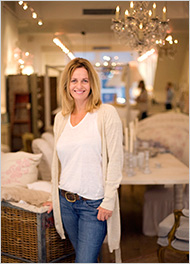 The New York Times Sunday business section has a regular feature called “The Corner Office,” that runs interviews with CEOs of small and mid-sized companies. For whatever reason——the skill of the interviewer, the size of the companies, seemingly honest portrayals——the interviews appear to be unscripted. The CEOs, many who are the owners of the business, come across as genuinely human and they speak frankly about their fears and concerns, the fears and concerns that as a fellow business owner I can relate to strongly.
The New York Times Sunday business section has a regular feature called “The Corner Office,” that runs interviews with CEOs of small and mid-sized companies. For whatever reason——the skill of the interviewer, the size of the companies, seemingly honest portrayals——the interviews appear to be unscripted. The CEOs, many who are the owners of the business, come across as genuinely human and they speak frankly about their fears and concerns, the fears and concerns that as a fellow business owner I can relate to strongly.
Rachel Ashwell, founder of home furnishings company Shabby Chic, was featured recently. Like many business owners, Rachel worries about her business:
“I don’t feel safe if I see non-thinking.
“To me, it’s not about some handbook that we have.
“Because, as we all know with business,
“so often these decisions,
“whether it’s about a customer, whether it’s about a trend, whatever it is,
“it’s usually the things outside of that book where decisions have to be made.
“And when I don’t see people thinking, if I lose it, that’s where I lose it and that’s where I don’t feel safe.”
Policy manuals are wonderful and needed, yet they have their inherent limits. Ashwell’s words ring true:
“To me, it’s not about some handbook we have… it’s usually the things outside of the book where decisions have to be made.”
Closing Quotes:
“The most serious mistakes are not being made as a result of wrong answers. The truly dangerous thing is asking the wrong questions.” — “Men, Ideas and Politics,” by Peter Drucker
“I would rather be surrounded by smart people than have a huge budget. Smart people will get you there faster.” — “The McKinsey Way,” by Ethan Rasiel


0 Comments